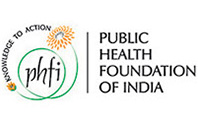Mauricio Hernández-Ávila, MD, MPH, PhD
Vice Minister of Disease Prevention and Health Promotion
Mexico's Ministry of Health
Biography
Dr. Hernández-Ávila, MD, MPH, PhD is Vice Minister of Disease Prevention and Health Promotion for Mexico's Ministry of Health. He earned his medical degree from the National Autonomous University of Mexico (UNAM) in 1980 and completed his residency in pathology at the Salvador Zubiran National Institute of Health Sciences and Nutrition (INNSZ) in 1982. Additionally, he studied applied statistics at the Applied Mathematics and Systems Research Institute (UNAM, 1984). He earned a Master’s degree (1984) and a Doctoral degree (1988) both of Science in Epidemiology, from the Harvard School of Public Health.Dr. Mauricio Hernández-Ávila started his career at the Mexican Ministry of Health as an attending physician in the Department of Community Nutrition at the INNSZ (1981). During his doctoral training, he was invited to serve as epidemiologist in the Department of Medicine at the Brigham and Women’s Hospital, in Boston Massachusetts (1987-1988).
After completing his postgraduate studies, Dr. Hernández-Ávila became Director of the Center for Epidemiological Surveillance of Chronic Illnesses and Accidents at the Mexican Ministry of Health (1988-1991). In 1991, he was appointed Director of the Center for Public Health Research of the National Institute of Public Health (INSP). From 1997 to 1999 he served as visiting professor at Emory University’s Rollins School of Public Health. Afterwards he returned as Director of the Center for Population Health Research of the INSP.
In 2004, he was appointed Executive Director of the INSP, a position he held until December 2006 when President Felipe Calderón Hinojosa appointed him as Mexico’s Undersecretary of Disease Prevention and Health Promotion.
Dr. Hernández-Ávila is a researcher of national and international prestige; his work stands out in three very important areas: Environmental Health, Cancer epidemiology, and Evaluation of National Public Programs and Public Health Policies.
He has authored 215 published scientific articles, six books, and 45 book chapters. He has also mentored and trained numerous Master and Doctoral students and has been invited to over 186 national and international scientific events.
As Director of the INSP he achieved a number of important results. During his administration he undertook a broad initiative to improve training in public health and other academic programs offered by the INSP. The outcome of this process was the accreditation of the INSP by the Council on Education for Public Health, in addition to the institution becoming the first member of the Association of Schools of Public Health from outside the U.S.
During this period, Dr. Hernández-Ávila also promoted the mission-oriented research which positioned the INSP as one of the most important Mexican institutions in terms of the development of solutions for the country’s principal health problems. Dr. Hernández-Ávila also coordinated an international group in charge of the evaluation of programs such as “Seguro Popular” and “Oportunidades (Progresa)”; these programs are the principal poverty-reduction strategies implemented by the Mexican government and they benefit over five million families. The group’s work generated important information for decision-makers and for the improvement of these programs.
In 1996, Dr. Hernández-Ávila received the Miguel Aleman Award for young scientists in the area of health and he has been distinguished as a Level III National Researcher of the National Researchers System (the highest level). In 2005, he received the Alumni Merit Award from the Harvard School of Public Health among a long list of other distinctions and awards.
Dr. Hernández-Ávila has been a member of the Mexican National Academy of Medicine since 1993 and of the Mexican National Researchers System since 1990. He sits on the Committee of Biomedical Sciences of the National Advisory Board of Science and Technology (CONACyT).



